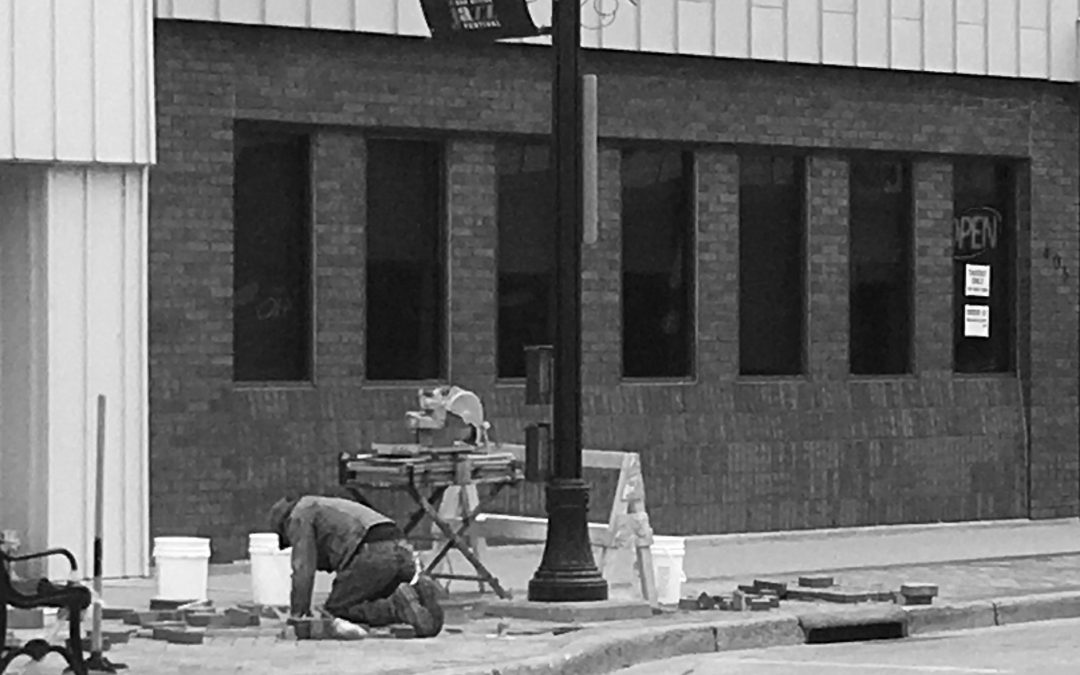There seems to be this pervasive feeling of needing to be (or at least thinking that we need to be) productive during this time of lock-down and Stay at Home Orders.
Throughout this pandemic, I’ve talked with my clients and many seem to have a degree of this ‘productivity stress’. I’ve been experiencing it myself. Why?
Is it just the fact that we have extra time? How would this create the stress? Perhaps there is a realization on the importance of time as a metric (for more on metrics, click here).
First, let’s define what ‘productive’ means. For most people I’ve talked with, it’s not in the sense of our employment duties. No, it’s in the sense of extracurricular activities, hobbies, passions, interests. Also, it’s typically related to creativity such as reading or writing, and more cultural than necessity based. Notions and plans that typically loiter around in the back of our minds, can now see the light of potential accomplishment. For me, it’s finally making a dent in my reading list, playing my cajon, digging in deeper to my study of Jiu Jitsu.
Man, we now have the time – Carpe’ Diem! At least that’s what we want to want to do. But are we doing that? Some are (and seeing those people may exacerbate our feelings). But I, like many, have the feeling of falling short.
That what we’re doing is not taking full advantage of this potential gold mine of found time! If you’re in this camp – Why?
One conjecture is that, given the specific situation, because this ‘dangerous’ virus is the reason we have the ‘extra’ time, productivity in these areas is difficult due to a sense of an un-safe mindset/environment (perceived that way at least).
A client once remarked to me that culture is what happens once a society has its basic needs met and is relatively ‘safe.’ This stuck with me. In non-pandemic life there could be a relaxing of the worry for food, being attacked, or if the weather posed a mortal risk that night. Therefore, there is a freedom to play, experiment, create art, and do all the things that elicit culture.
This virus situation has so many unknowns, as well as the very real aspect that some people are facing mortality, that an ‘unsafe’ environment is created. Our raised anxiety becomes a hum in the background if not a continual beating cadence. Just venturing out to grocery shop we’re now looking at others, from behind our own masks, with a certain caution and trepidation that wasn’t there previously. We are continually performing a threat assessment, even minimally. And, this can continue on our homes, typically a place of respite.
Questions stick with us when we close the door: “What did we touch before entering the house? How close was I to other people today?”
And we may experience real health concerns that are asymptomatic – talk about grounds for a generalized sense of anxiety. It’s no wonder our creative endeavors are thwarted.
So what to do?
1. Self-talk the narrative in our minds, meditation, etc. to help calm the anxiety – at least long enough to engage in even short bursts of creative work. Stress the importance of now, and grasp the controllable and uncontrollable factors of your daily life. Perform some basic CBT (Cognitive Behavioral Therapy) on yourself – it helps.
2. Lessen if not eliminate the expectation of creative productivity. Those pursuits you want to do have been in the back of your mind and will continue to reside there. Maybe you’ll work on them, maybe you won’t. Two great self-talk words: “It’s OK.” I’m not one for complete radical acceptance of just not doing anything and being okay with it. But, don’t further complicate things by making yourself feel bad for what you haven’t accomplished, as there may be a very real stifling reason. Practice acceptance. Sometimes it really is okay.
Time will tell. This will end, but we don’t know when. That also increases the sense of urgency to get things done.
If it were just that we managed to finagle more time in our ’normal’ daily routine, would we still feel the same love of expectation to be productive with it?
So,
3. Recognize that external factors and situations are holding the cards here. Things will change, just as they have changed. And there may not be a need to drastically change the way you live. There always exists the question, “What happens when the world changes again?”

